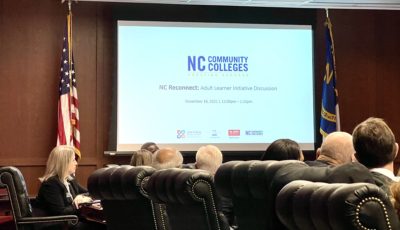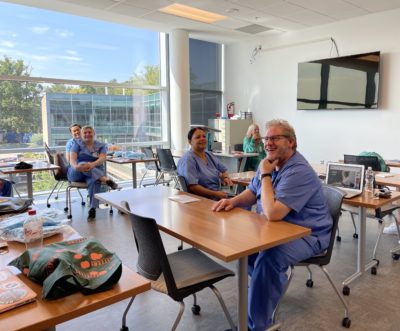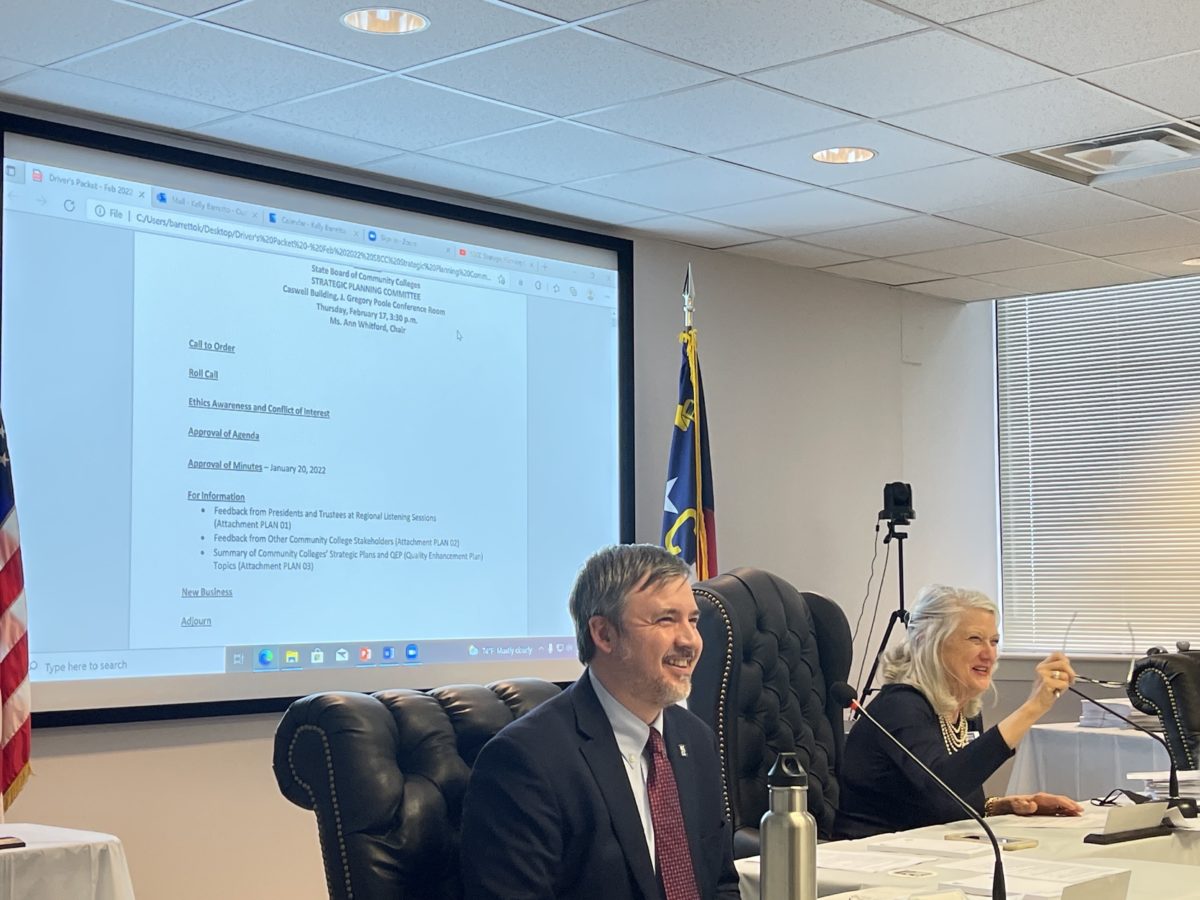
|
|
Recent numbers show enrollment at North Carolina community colleges increased 2% in fall 2021.
During the February State Board of Community Colleges meeting, N.C. Community College System (NCCCS) president Thomas Stith announced 33 of the 58 colleges reported increases in full-time student equivalents, a measure based on the number of accumulated student hours.
Enrollment increases were largest among basic skills and workforce continuing education courses. Basic skills increased 40%, and workforce continuing education increased 22% after suffering sizable declines in fall 2020. As for curriculum courses, enrollment bounced back some from the previous fall but still sits at a 3% decline.
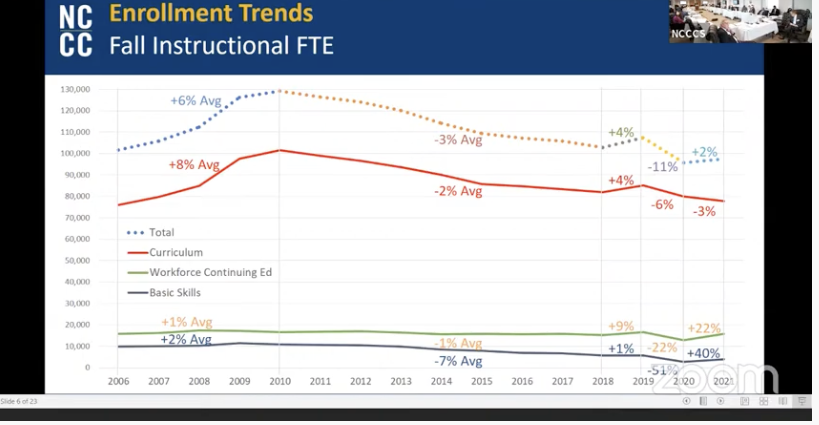
Stith said demographic and headcount information will be available later this month.
The annual Career & College Promise (CCP) report presented during the Board meeting showed 68,477 high school students participated in CCP during the 2020-21 academic year, which is a 3% decrease from the previous school year. Of those enrolled, 32% attended Cooperative Innovative High Schools, and the other 68% participated in career and technical education or college transfer programs.
The report notes the decrease may be due to the rapid increase during the 2019-20 school year when almost 71,000 students were enrolled in CCP courses.
Strategic planning updates
Since September, the State Board of Community Colleges has been engaged in a strategic planning process that will outline their vision for the system’s future. To aid in the development of the system’s 2022-2026 strategic plan, the Board and system office staff hosted eight regional listening sessions (December through February) where they heard from college leaders and stakeholders across the state.
Participants in the listening sessions were asked three questions:
- What is the biggest challenge facing your college right now?
- What is one solution you want to highlight that is helping address a critical issue in your community or region?
- What can the State Board and system office do to better support your students and institutions?
Some of the biggest challenges expressed by college presidents and other stakeholders include recruitment and retention of faculty and staff, enrollment, funding, and data.
College leaders identified several areas where they could use support from the State Board and system office. These included faculty and staff retention, advocating for increased community college funding, examining the current funding formula model, helping boost enrollment with more statewide marketing, and leveraging systemwide buying power to help colleges purchase systems to improve data and technology.
Dr. Patrick Crane, vice president of strategic initiatives at the system office, said the top priorities were faculty and staff recruitment and retention followed by enrollment declines.
“Number one that we heard from every single college was faculty/staff recruitment and retention,” said Crane.
Crane asked Board members during the strategic planning committee meeting to identify five areas where they see the greatest opportunities to address the challenges of the system.
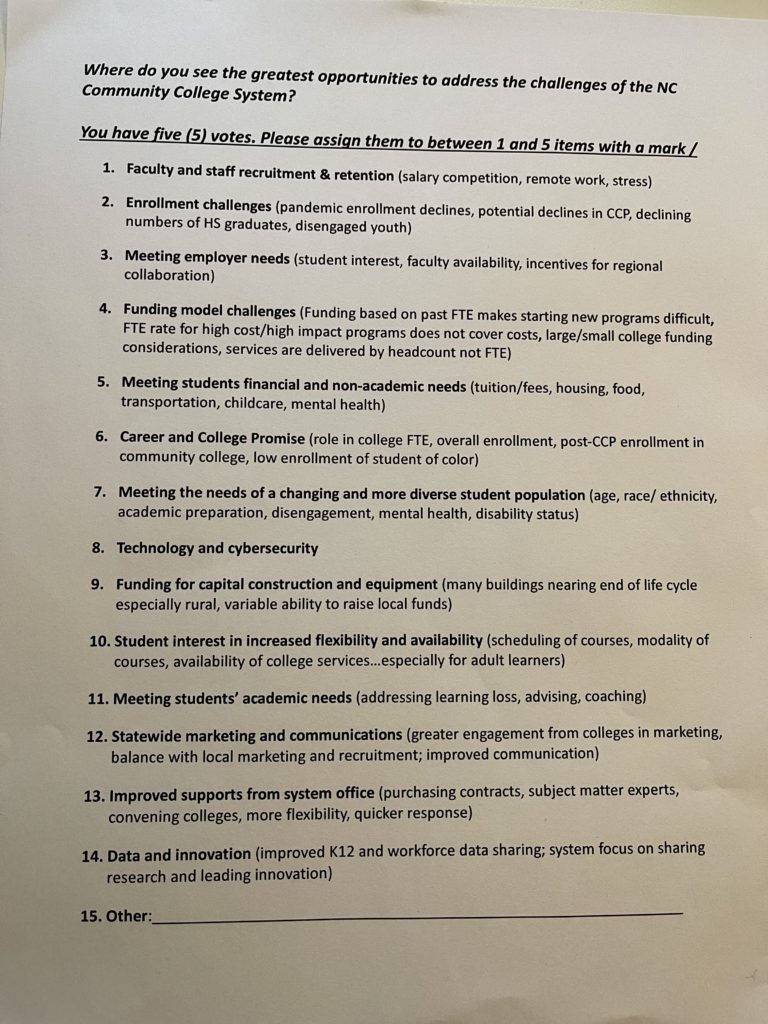
Board members identified their top five, but the consensus at the end of the exercise was that the committee needed more time to prioritize and think about how some of the challenges could be combined. The committee also suggested identifying both short-term and long-term goals.
Board evaluation and system office assessment
The Board also approved a self-evaluation survey. Jerry Vaughn, chair of the policy and governance committee, said this survey is designed to help the Board engage better with the system office staff and president.
“The North Carolina Community College System (System) has faced massive disruptions in our local and global landscape and in our higher education systems,” reads the draft survey. “The System plays an increasingly vital role in driving the economic and societal well-being of our state and citizenry. A high-performing Board of Directors is critical to System success and can lend important support to the System Office at this pivotal moment.”
According to the survey draft, findings will be used to inform two objectives:
- Establishing an annual goal and expectations for the system president
- Designing and executing a three-year Board engagement and development plan
You can view the full survey here. The results will be presented during the March Board meeting.
The Board also heard about an “organizational assessment” launched by the system office in Dec. 2021 and conducted by CampusWorks. According to a press release, the assessment is meant to ensure that the system office is “properly resourced and aligned with stakeholders to meet its vision and mission.”
The assessment includes surveys, focus groups, interviews, data analysis, documentation review, and more.
According to the press release, the final report with “an accompanying roadmap” is expected in April.
New faces
Dr. Patty Pfeiffer, new president of Wayne Community College, spoke at the Board meeting Friday, expressing gratitude for community colleges.
“I have a great passion for community college education…I am a product of the community college. What you don’t know is that I am a product of a single mother. I had free lunch K-12th grade…We have an opportunity at community colleges to change individuals’ lives. For me, that is what happened.”
Dr. Patty Pfeiffer, president of Wayne Community College
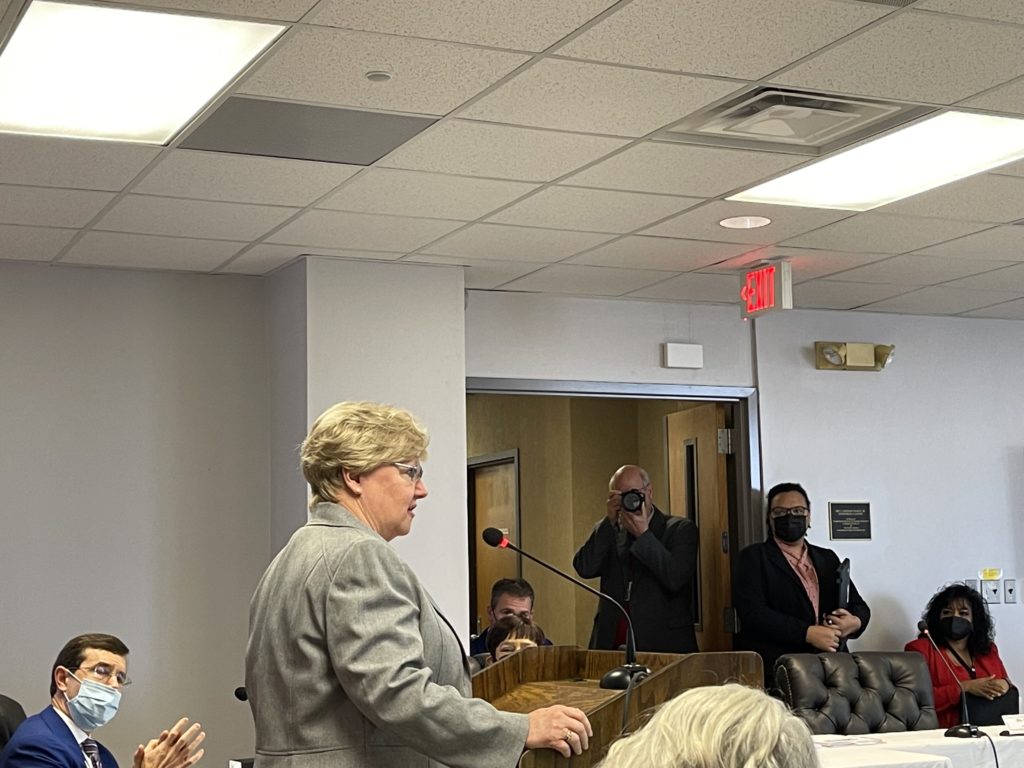
Grant Godwin, newly appointed executive director of the North Carolina Community Colleges Foundation, addressed the Board and shared his vision for the foundation’s role in the coming years.
According to Godwin, in years past the foundation has been staffed by the system office. But after the departure of several staff members, the foundation has been in the process of separating themselves organizationally from the system office.
“It will enable us to be more progressive, more aggressive, more attentive to what the needs and interests are of the system office, the State Board, and the 58 colleges,” Godwin said.
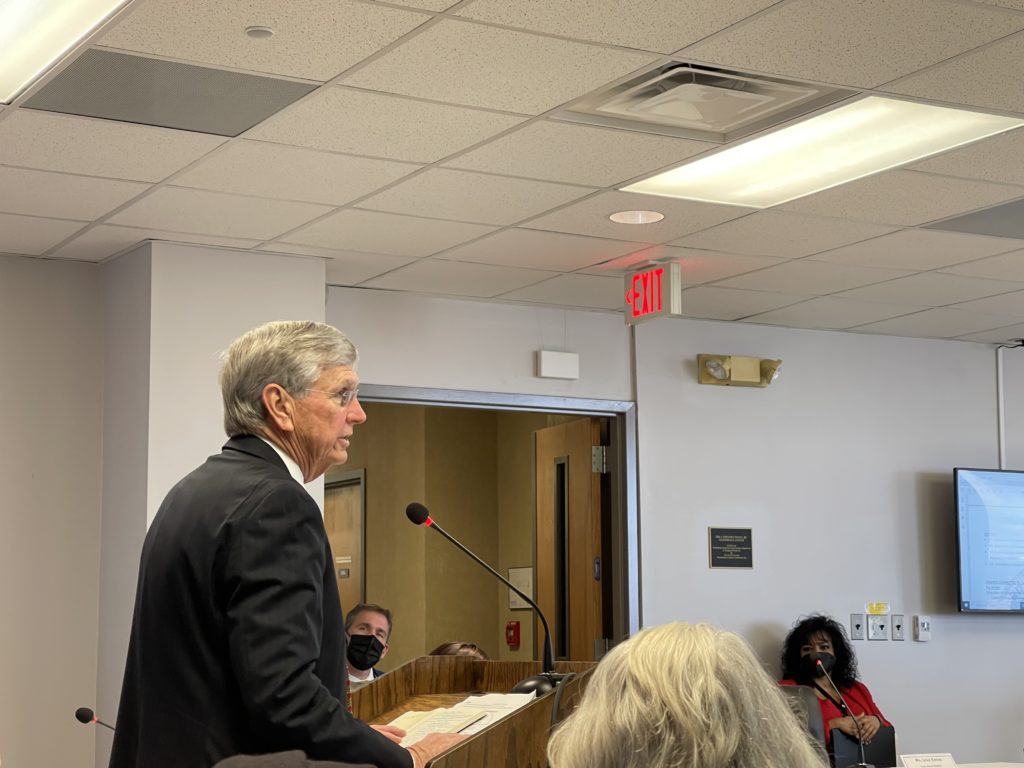
Godwin is the first executive director of the foundation.
He said his goal for the foundation includes better communication and relationships with the Presidents and Trustees Associations. He also said the foundation will be launching a major capital campaign and that the foundation’s budget will be synced with the system’s strategic plan and will focus on the highest priority needs of the 58 community colleges.
“As we fund projects, we like pilot projects that can be started in one area and then leveraged across the state,” Godwin said. “We focus on areas of impact that can affect all the colleges or as many colleges as possible, encouraging regionalization.”
Other items to note
The Board approved two new Cooperative Innovative High Schools (CIHS) for the 2022-23 school year.
Edgecombe Community College and Edgecombe County Schools will partner to form EDGE Early College of Health Sciences. The early college will provide opportunities for students interested in pursuing health sciences and will assist in meeting the overall health care needs in Edgecombe County.
The Board also approved Wake Early College of Information and Biotechnologies, a partnership between Wake County Schools and Wake Technical Community College. The goal is to meet the demands for information and biotechnologies in the Triangle.
The Board approved funds to recruit and retain community college faculty in high-demand fields. The funds, which were part of the state budget, can be used for salary increases, or one-time bonuses for hard-to-recruit or hard-to-retain faculty in Tier 1A or Tier 1B courses. This includes part-time and full-time faculty in both curriculum and career and technical education.
Allocations for each community college can be found here.
The next State Board of Community Colleges meeting is March 17-18.
Recommended reading
